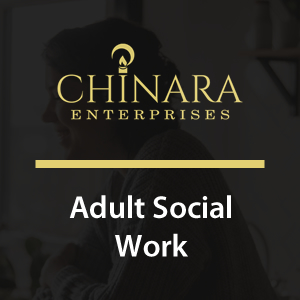
by Carol Stewart | May 25, 2021 | Blog, Latest News, Uncategorised
Many of you who are on the Social Work England registered will have recorded and reflected on your CPD over the past year, and should be well underway in doing the same this year.
During the first year of their regulation of social work in England, they specified a minimum requirement of at least one piece of CPD, although they recommended recording at least 4 times per year.
On the website there are 2 versions of the template to record your CPD, some found the unstructured form easier to use.
They have also produced guidance for registrants who are not in direct front line practice, or currently not working.
As part of a series of reviews they are undertaking, Social Work England are carrying out a consultation on the CPD standards.
They are seeking views on the following :
- An increase in the number of CPD entries from 1 to 2
- Setting broad themes for CPD
- The proposed template for recording
- Social workers speaking with a registered social work peer as part of their CPD
- Changes to validation
- Measuring the impact
To take part in the consultation click on this link, the survey closes 5pm , August 11.
At Chinara Enterprises we have a plethora of resources and affordable, flexible CPD to help social workers meet Social Work England’s requirement.
Free events for our members.
We have some free bite sized 30 minute sessions for our members coming up. You can RSVP to these events if you are logged in as a member on the learning and development platform on this site.
The free 30 minute bite sized events we have coming up are:
Shefali Shah , Director of Kingsley Knight Training will be sharing 5 key legal takeaways from her recent publication A Child’s Legal Journey through care and the importance for social care professionals to keep up to date with the law.10/6/21 : 6pm-6.30
Subscribers to the site can get a special offer on the book, click on the event for more details
Developing Self Confidence : 30/6/21
“Whether you think you can or think you can’t, you’re probably right” Henry Ford
In this short taster session we will consider how our thinking patterns can impact on our self-confidence. And we will explore some of the confidence building tips and techniques that will enable you to take more control of your life.
If you are not a paid or registered member and would like to join, then contact us for more information, or visit our membership information on the site
Support to maintain your personal and professional development
We have a great range of learning and development events taking place over the next few months.
Group reflective supervision sessions for adults: 27th May for adults social workers
Understanding stress, pressure and burnout: June 1st
Group reflective supervision for child and family social workers: 9th June
Click on the latest events section of the website to see details of other events and to book your place.
To access the discounted rate for the events you will need to be logged in as a member. If you are not a member and would like to join, then sign up on the membership page
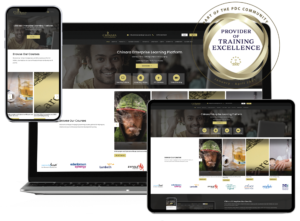
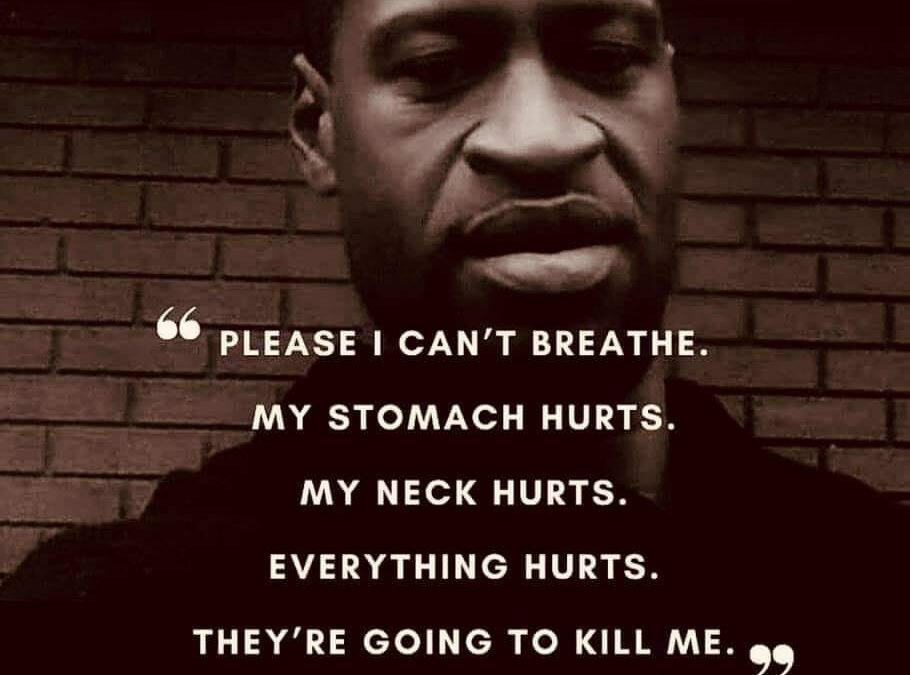
by Carol Stewart | May 25, 2021 | Blog, Latest News
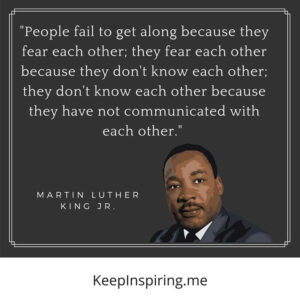
On the 25th May 2020, the whole world witnessed an act of racially motivated brutality that resulted in the death of George Floyd.
Derek Chauvin, was seen kneeling on the neck of a man that was handcuffed, unable to move , unable to breathe for 9 minutes.
The aftermath that followed sent shock waves all over the world. We saw #Blacklivesmatter matter trending all over social media, organisations posting #BLM statements to show solidarity, we saw protests, endless debates, and an increase in diversity training.
There was a sense of shock and disbelief that a police officer, who is meant to protect and serve, could do such a thing.
The outrage that followed, was not just about what happened on that fateful day, it was anger and outrage about all the other people that have been murdered by police not just in the states but in other parts of the world, Sandra Bland, Trayvon Martin, Clinton Mcurbin, for whom nobody has been held to account. It was a call for action, a call for justice.For decades a number of individuals and families have been campaigning for more thorough investigations into deaths in custody. One such organisation is The United Families & Friends Campaign (UFFC). They were established in 1997 by families who had loved ones die in police custody.
Figures in 2020 showed that over a period of 10 years, there were 164 people who had died in police custody in England and Wales. ( BBC.co.uk June 3 2020).
Over the past year, many organisations have been reflecting on how to respond, but in a way that is meaningful. They have used it as an opportunity to reflect on the diversity of their workforce, the services they deliver, and if they meet the needs of a diverse population, treatment of Black and minority staff with regards to career prospects.
So what has changed?
I have seen some changes, although the lasting impact is yet to be measured. I have seen an increase in diversity training, reviews now taking place on the race equality framework for local government, a government commissioned report into race and ethnic disparities, which has received widespread criticism.
I have seen schools examine diversity in the curriculum, more diverse representation in the media, especially in TV advertising and mainstream media.
Whilst this all sounds really positive, worryingly we are still seeing and hearing of racist incidents in sports, in the media, disproportionality in stop and search, and a lack of diversity at senior levels in organisations.
A report published in February 2021, showed that Black and other minority people are 4 times more likely to be stopped and searched than white people. ( Her Majesty Inspectorate of Constabulary, Fire and Rescue)
I am in no doubt that the events of May 25 2020, will reverberate for many years to come, as many still struggle to find solutions to a centuries old problem.
The biggest change for me, was the conviction of Derek Chauvin, this for me restored some faith in the justice system. My hope is that this faith continues to be restored, and that others who have suffered the same fate as George, find justice too.
So what is the answer?
It has to start with self…we need to examine our own conscious or unconscious bias, our own values, and the impact that they have on others, and how we engage with others.
Without starting with self and being honest with self, any actions will most likely have no long lasting effect. Training may help, but more importantly, it is the reflection post training that will make the real difference.
So one year on what will you do?
I started of this blog post with a quote from Dr Martin Luther King Junior, and I will end on another quote from him, one year on… don’t be silent…
Thank you for reading
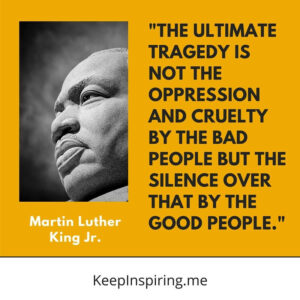
To keep up to date with our latest news, why not subscribe
Carol Stewart
Director
Chinara Enterprises Ltd
May 25 2021

by Carol Stewart | May 23, 2021 | Liquid Personnel, Personal Development, Personal Development Resources, Resources
This document is for use by social workers who are returning to social work practice. The aim of the profile form is to provide information to prospective employers to assist them in understanding your learning needs from the supervised practice. If you are working with a mentor, you can discuss this as part of your sessions to plan your learning and development needs.

Get access to all resources, eLearning and discounted personnel development services.









